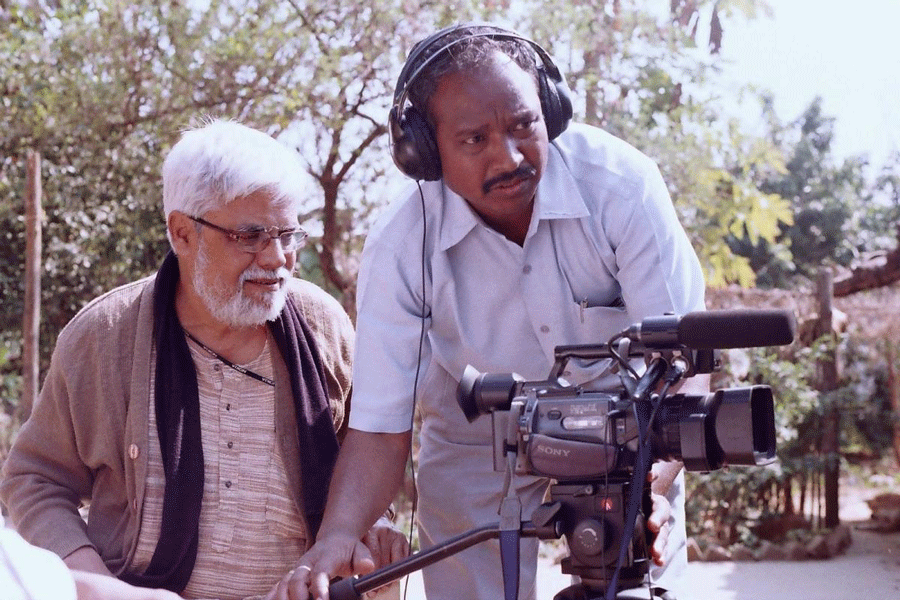The National Film Archive of India (NFAI) will archive the cinematic work of two national award-winning documentary filmmakers from Jharkhand.
The filmmakers, Meghnath (Bhattacharya) and Biju Toppo, had formed their organisation, Akhra, and made 22 documentary films, mostly jointly, since 1996.
They also bagged three national awards for filmmaking — two in 2010 and another in 2017.
They had bagged two national awards in 2010. The one was for Iron Is Hot which highlighted the “grievous impact of pollution due to sponge iron industry on local residents” and was adjusted as the best environmental film while the other was for Ek Ropa Dhan which was focused on innovative cultivation of paddy and was considered as the best promotional film of the year.
The 2017 national award, on the other hand, was given to them for Naachi Se Baanchi which was based on the life and work of the tribal ideologue Ram Dayal Munda and adjudged as the best biographical film.
“We are indebted to NFAI where I had gone way back in 1989 to attend a film appreciation course for archiving our work for future generations,” Meghnath said as Biju nodded in the affirmative.
He had learnt about the nuances of cinema from the stalwarts like Professor
Satish Bahadur and P.K. Nair there.
Incidentally, Biju also went there for a similar course about a decade later.
The decision of the NFAI to archive their work began following its acceptance of a proposal from Sudarshan Yadav who teaches at the local central university for including his research work on the filmmaker duo under the monograph writing project of NFAI in 2021.
“Though some experimental films were made in Jharkhand in 1980s, the true, full-fledged Jharkhandi cinema, in terms of the issues of the state, came into being in the late 1990s when Meghnath and Biju Toppo made their films,” Yadav said, explaining why he was interested in writing a monograph on their work.
A part of the monograph was also published as a book titled Meghnath and Biju Toppo (Filmmakers from Jharkhand) by Lavent Books of Calcutta and was locally released at a modest function at St Xavier’s College in Ranchi on Wednesday.
“Meghnath, along with Biju Toppo, his companion in arms, worked to introduce tribal voices from the state of Jharkhand.
“Their films attempt to question the idea of ‘development’ as perceived by the
West and conventional Indian society and the effect this has on the lives and perception of the Aduvasi or tribal people,” Suhasini Mulay, the filmmaker and writer under whose guidance Meghnath had worked in a few projects initially, wrote to introduce the book.
Besides Mulay, Meghnath had also either worked under or learnt from documentary makers like Tapan Bose, Anand Patwardhan and K.P. Sasi.
“I am a fan of their films because those capture the local issues and nuances of tribal culture,” a young filmmaker Niranjan Kujur who was trained at Satyajit Ray Film and Television Institute, Calcutta said about their films, adding Biju captured the frames so deftly in his camera that it convincingly translates the idea Meghnath conceived.










